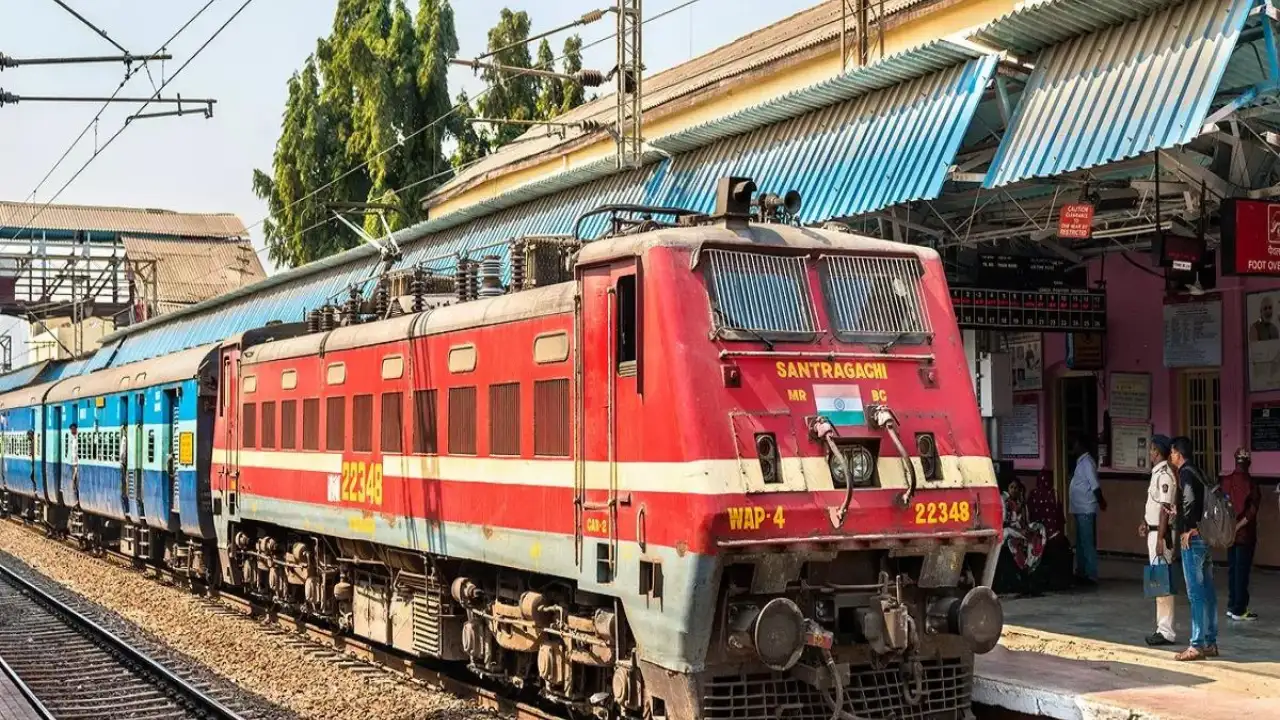Indian Railways has committed over Rs 275 crore to upgrade 13 railway stations across Odisha’s historically underserved Kalahandi-Bolangir-Koraput (KBK) region.
The initiative, part of the ambitious Amrit Bharat Station Scheme, is poised to transform connectivity, enhance commuter experience, and ignite economic growth in one of India’s most socio-economically challenged belts. According to senior railway officials, this wide-ranging redevelopment aims to provide modern, inclusive, and sustainable rail infrastructure. With the region’s stations acting as lifelines for trade, mobility, and tourism, the investment is expected to create a long-lasting socio-economic ripple effect. The project reflects Indian Railways’ broader agenda of building future-ready, eco-conscious, and accessible public transport systems across the nation.
Among the key beneficiaries of the investment is Rayagada station, which has been allocated Rs 41.4 crore — the highest among the 13 stations. Other major funding allocations include Titlagarh (Rs 35.79 crore), Kantabanji (Rs 33.87 crore), Koraput (Rs 21.2 crore), Kesinga (Rs 20.85 crore), and Muniguda (Rs 20.16 crore). Stations such as Bhawanipatna, Bolangir, Jeypore, Harishankar Road, Khariar Road, and Damanjodi have also been earmarked for extensive upgrades, with officials confirming that work at Gunupur station is also being finalised. The redevelopment blueprint hinges on four key pillars: infrastructure modernisation, sustainability, passenger-centric amenities, and universal accessibility. Officials noted that the station buildings will be redesigned to provide contemporary waiting lounges, revamped ticketing facilities, improved platforms, and better crowd management systems. New second entry points are being constructed at stations like Titlagarh and Kantabanji to ease congestion, while extensive foot-over-bridges (FOBs) are being planned at critical hubs including Koraput, Damanjodi, and Rayagada. The 142-metre FOB proposed at Rayagada station is particularly significant, expected to streamline passenger movement across multiple platforms.
In a strong nod to environmental sustainability, the modernisation projects will incorporate solar energy systems, water conservation frameworks, and sewage treatment plants. Green building technologies will be integrated into the designs at stations like Bolangir and Muniguda, aligning with the nation’s climate action goals. Rainwater harvesting and systematic waste management solutions will also become a common feature across stations, supporting the push towards carbon neutrality in public infrastructure. Passengers travelling through the KBK region can expect an enhanced experience, with the introduction of high-speed Wi-Fi connectivity, digital signage, GPS-enabled clocks, and intelligent coach display systems. Facilities such as modern restrooms, lifts, and accessible pathways will ensure that travel remains comfortable and equitable for all citizens, including senior citizens and differently-abled individuals.
Addressing concerns around safety and accessibility, railway officials confirmed that platform surfaces will be raised and resurfaced uniformly, and new FOBs will be equipped with ramps and lifts to ensure universal access. This is part of a larger focus on building gender-neutral, disability-friendly urban transport spaces, a vision that resonates with contemporary sustainable urban planning principles. Beyond passenger convenience, the project carries profound economic implications for the KBK belt. The region, rich in mineral resources and boasting a unique cultural heritage, has long struggled with limited infrastructure and economic isolation. Improved railway connectivity is expected to unlock regional tourism potential, enable more efficient trade flows, and open new employment avenues during and after construction. Officials highlighted that strengthening ties between remote towns like Muniguda, Damanjodi, and larger urban centres will boost local industries and facilitate smoother movement of goods and services.
Urban integration is another core element of the redevelopment strategy. Redesigned parking facilities, better approach roads, and dedicated pick-up and drop-off zones are being developed to ease traffic congestion around the revamped stations. By fostering more accessible urban environments, these enhancements will contribute to building smarter, greener cities in line with India’s sustainable development vision. Work at several sites has already commenced, with railway authorities committed to a phased implementation plan spread across the next two years. Officials emphasised the importance of adhering to strict timelines to minimise commuter inconvenience and maintain construction quality. Periodic reviews and stringent monitoring protocols are being put in place to ensure timely and efficient execution of all projects.
While the scale of investment is impressive, the true success of the initiative will lie in its impact on people’s lives. For thousands of daily commuters, traders, students, and tourists in Odisha’s KBK region, the modernised stations promise not just better travel experiences but also a bridge to new opportunities. In doing so, Indian Railways reaffirms its role as a catalyst for inclusive and sustainable national development. As these upgrades gather momentum, the KBK region looks set to emerge stronger, better connected, and more resilient, turning a new page in its developmental journey.
Also Read :https://urbanacres.in/bihar-gains-major-railway-boost-this-year/
Odishas KBK Railway Stations to Get Rs 275 Crore Infrastructure Upgrade


